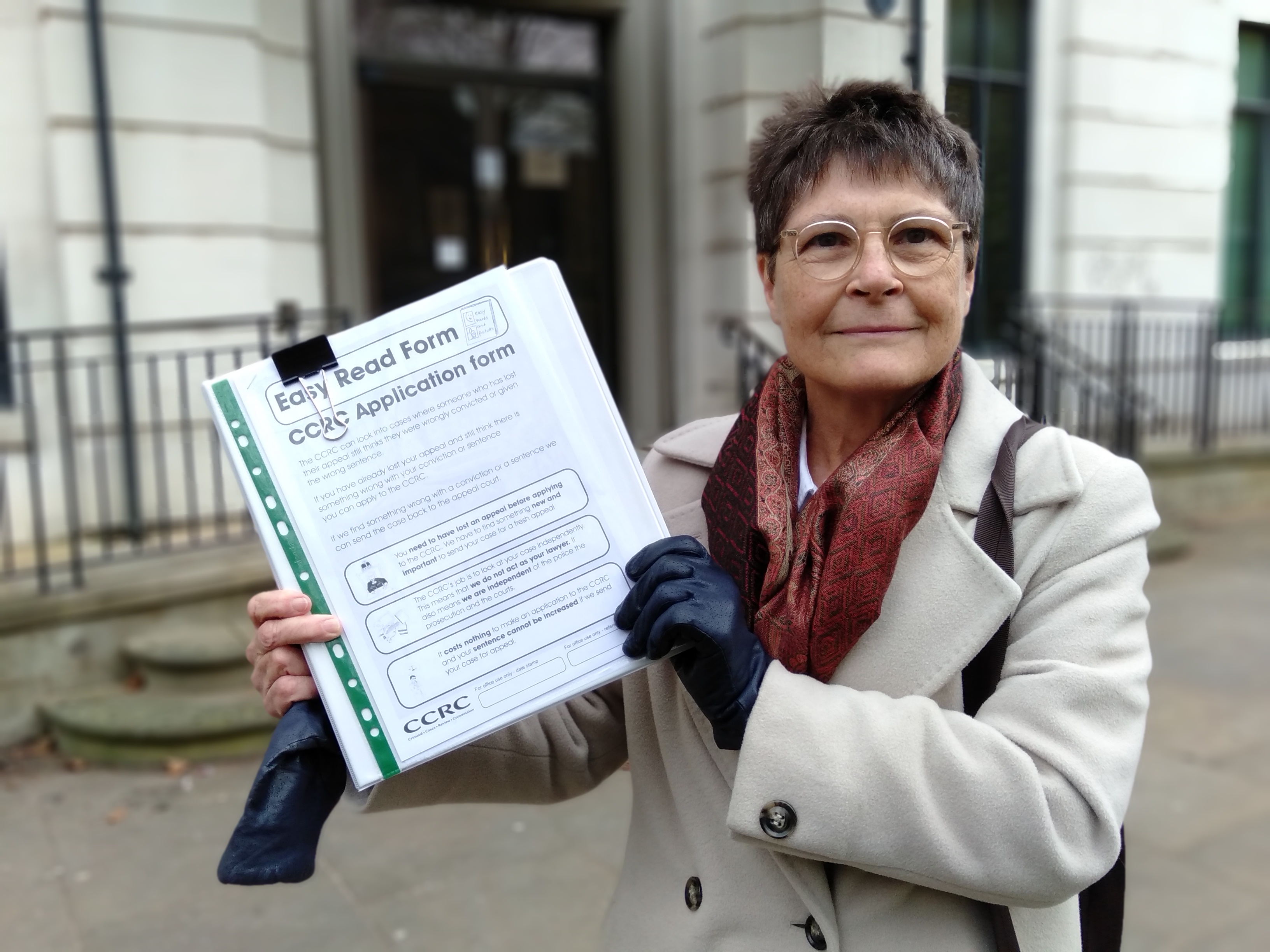The CCRC is being asked to review the 1917 criminal case against Derby resident, Alice Wheeldon and her family - once known as the ‘plot to murder Lloyd George’. The application was lodged by Alice’s great granddaughter, Chloë Mason. It is the product of a great deal of collaborative work undertaken across a number of years and is supported by statements from key academics, researchers, writers and others, including Professor Lois Bibbings.
The case goes back to the First World War in which Alice Wheeldon and her family were well known opponents of the war and conscription. Alice, her daughters Hettie Wheeldon and Winnie Mason, and her son-in-law Alf Mason, were accused of conspiracy to murder Prime Minister, David Lloyd George and Arthur Henderson, Labour member of the War Cabinet. Hettie was acquitted, but Alice, Winnie and Alf Mason were all convicted and imprisoned. The family argued that they had been set up by two undercover agents and that the murder plan was fabricated – a fantasy, described by the Manchester Guardian during the trial as “a story so strange that it seems hardly to relate to the world of reality”.
Leave to appeal was refused at the time, and until the creation of the CCRC, there was no recourse to further appeal or review, even as evidence emerged of the unfairness of the trial.
The CCRC application has been compiled by Chloë Mason in conjunction with barristers Andrew Smith QC and Ben Williams of St Philips Chambers, Birmingham. It is supported by more than 170 pages of extensively referenced argument, drawing on records from newly opened government and institutional archives, family papers, photographs, digitised newspapers and historical research. Copies of hundreds of original documents have also been provided to assist the Commission in assessing the application. Chloë Mason says the application sets out powerful reasons for the Commission to refer the case to the Court of Appeal, and she believes there would be a real possibility of the verdicts being overturned.
“Lodging this application is an important milestone on the path towards a successful appeal,” said Ms Mason. “We have combined a wealth of evidence unavailable to the defendants at the time to argue that the trial was unfair and the convictions should be quashed.”
Professor Bibbings says that “Lodging this application represents an incredibly important moment. It means that past injustices at last have a chance of being reconsidered by the Court of Appeal. It means that the harms caused to the family, which have been considerable and continue to be felt, may to some limited degree be addressed. And in terms of history, the application reveals a past that was hidden from public view and has taken a great deal of investigative collaboration from around the world to uncover and piece together. All-in-all and despite its age this is a hugely significant case.”
